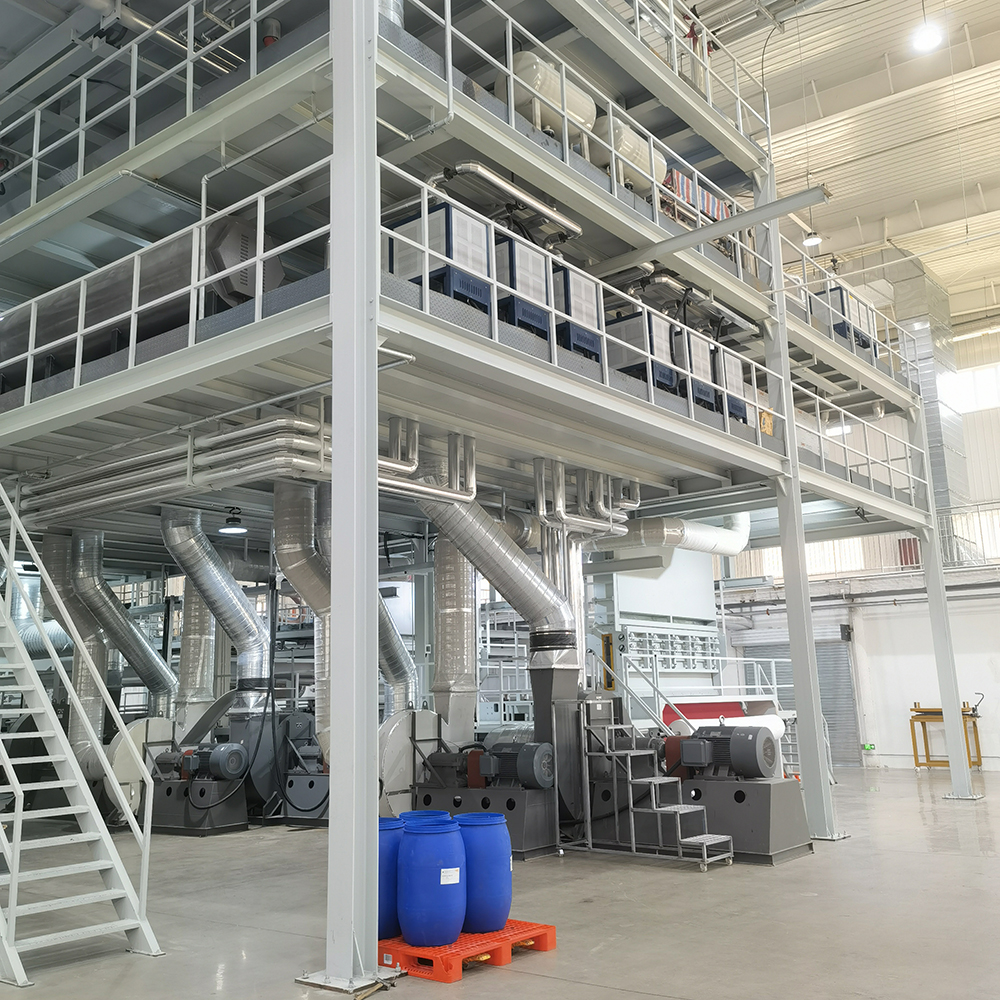Spunbond Machine, the main material is polyester and polypropylene, with high strength and high temperature resistance
definition
Spunbond Machine: After extruding and stretching the polymer to form continuous filaments, the filaments are laid into a web, and the web is then subjected to self-bonding, thermal bonding, chemical bonding or mechanical reinforcement methods to make the fiber web. into a non-woven fabric.
Features
Good high temperature resistance, good low temperature resistance (polypropylene can be used for a long time at 150°C, polyester can be used for a long time at 260°C), aging resistance, UV resistance, high elongation, good stability and air permeability, corrosion resistance , sound insulation, moth-proof, non-toxic.
The main purpose
The main materials of Spunbond Machines are polyester and polypropylene.
The main products of Spunbond Machines are polypropylene and polyester (long fiber, staple fiber) non-woven fabrics. The most common and commonly used applications are non-woven bags, non-woven packaging, etc.; for Spunbond Machines It is easier to identify, generally has good two-way fastness, and the rolling point of general Spunbond Machines is diamond-shaped.
At the application level, it can also be used as flower packaging cloth, luggage cloth, etc. The characteristics of wear resistance, firm hand feeling, etc. make it the best choice for making such products.
Process flow
Polypropylene: polymer (polypropylene + return material) – large screw high temperature melt extrusion – filter – metering pump (quantitative conveying) – spinning (spinning inlet and outlet stretching and suction) – cooling – Air Traction – Net curtain forming – Upper and lower pressing rollers (pre-reinforcement) – Mill hot rolling (reinforcement) – Winding – Reverse distribution and slitting – Weighing and packaging – Finished product storage
Polyester: processed polyester chips – large screw high temperature melt extrusion – filter – metering pump (quantitative conveying) – spinning (spinning inlet up and down stretching and suction) – cooling – air traction —— Net curtain forming —— Upper and lower pressing rollers (pre-reinforcement) —— Hot rolling of rolling mills (reinforcement) —— Winding —— Reverse distribution and slitting —— Weighing and packaging —— Finished product storage
Type of technology
The world’s spunbond non-woven technology mainly includes Lacoffel technology from Reifen, Germany, STP technology from Italy, and Kobe Steel technology from Japan. The current situation, especially with Reffin technology becoming the mainstream technology in the world. Has developed to the fourth generation of technology. It is characterized by the use of negative pressure ultra-high-speed air drafting, and the fiber can be stretched to about 1 denier. Many domestic enterprises have already made imitations. Since there are many cutting-edge problems in its core technology that have not been solved or mastered, it will take time for domestic equipment manufacturers to reach the technical level of Refine.
